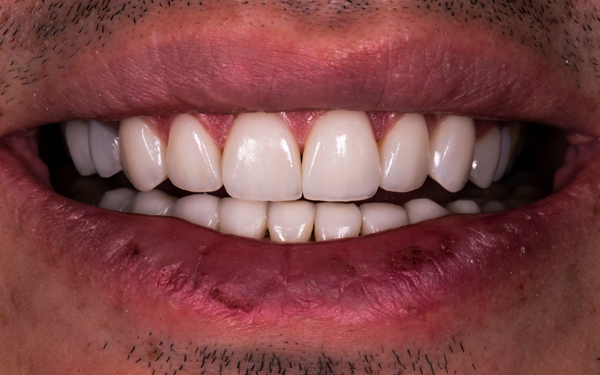Dental Ridge Preservation: Dental Implants

Dental ridge preservation is a way to preserve the socket after a missing tooth develops. Dental implants require adequate bone support, and bone loss can occur after losing a tooth if the bone density is not preserved. This review offers insights into the purpose of dental ridge preservation as it relates to dental implants treatment.
Ridge preservation and dental implants
Ridge preservation may prevent the need for a bone graft procedure after tooth extraction or tooth loss, particularly if the patient plans to replace the tooth (or teeth) with dental implants. The following is everything to know about dental ridge preservation and dental implants after a missing tooth or multiple missing teeth.
The purpose of dental ridge preservation
Dental ridge preservation, also called socket preservation or a ridge augmentation, reduces the impact of bone loss after tooth extraction or tooth loss. Bone loss can occur after a tooth extraction if the socket is not preserved. This is particularly an issue if the patient plans to replace the missing tooth with a dental implant, dental bridge or denture. If the bone loss occurs, there may not be enough healthy bone to support an implant, leading to implant failure. Fitting a bridge or denture could become a concern as well without dental ridge preservation.
Dental ridge preservation before dental implants
As mentioned, dental ridge preservation is an important step if the patient plans to replace one or more extracted or missing teeth with a dental implant. Dental ridge preservation involves filling the socket with bone or an artificial replacement substance to prevent bone loss inside the jaw. With dental ridge preservation, the patient can often jump straight into the dental implants placement process, whereas a loss of bone in the jaw may lead to a need for more extensive treatment (see below).
What to expect without dental ridge preservation
Without dental ridge preservation, the likelihood of significant bone loss inside the jaw is greater. If bone loss does occur, then the risk of a failed dental implant also increases. Patients who lose too much bone after tooth loss require a bone grafting procedure to replace the missing jawbone before the dental implants procedure. While it is safe, bone grafting is more invasive and makes the dental implants process take longer.
How the dental implants process works
The dental implants process after dental ridge preservation or bone grafting (when necessary) involves a minor surgery to place the dental implants, followed by a healing period where the implant fuses with the jawbone. Once the mouth is healed, the abutment and artificial tooth are placed to complete the restoration process, and the patient can enjoy their new smile for years to come.
Talk to our dental team to learn more about dental implants
Contact our dental team by phone or email to arrange a consultation visit if you have any dental concerns or would like to learn more about dental ridge preservation or dental implants. We are experienced and take pride in helping our patients improve the oral health and appearance of their teeth and smile.
Request an appointment here: https://www.queensfamilydental.com or call Queens Family Dental at (718) 954-9425 for an appointment in our Flushing office.
Check out what others are saying about our dental services on Yelp: Dental Implants in Flushing, NY.
Recent Posts
Dentures are the go-to solution initially for many people after tooth loss occurs. While dentures can restore appearance, they are not as much of a long-term solution as Dental Implants. Many dentists recommend patients replace their dentures with dental implants for increased comfort, improved function and to enjoy a range of other benefits. Dentures rest upon…
Dental implants are a great treatment option for patients who have lost one or more teeth. It is a solution that preserves your oral health, restores confidence and provides a youthful appearance. Many people who lose a tooth are great candidates for dental implants. This process involves placing an implant post on the lower or…
The dental implant has become one of the most effective restorative procedures for people who have lost one or more teeth. The convenience, durability and recent innovations in implant design have made the process popular. Nevertheless, since implants need certain bone mass to integrate properly in the mouth, placing the dental implant is sometimes a…
A dental implant restoration is a method of teeth replacement that offers long-term durability and a natural feel and function for patients. It involves the placement of a dental implant (a titanium dental post) into the jawbone, followed by attaching the abutment and prosthetic (crown, bridge or denture). The dental implant restoration process involves a consultation…


